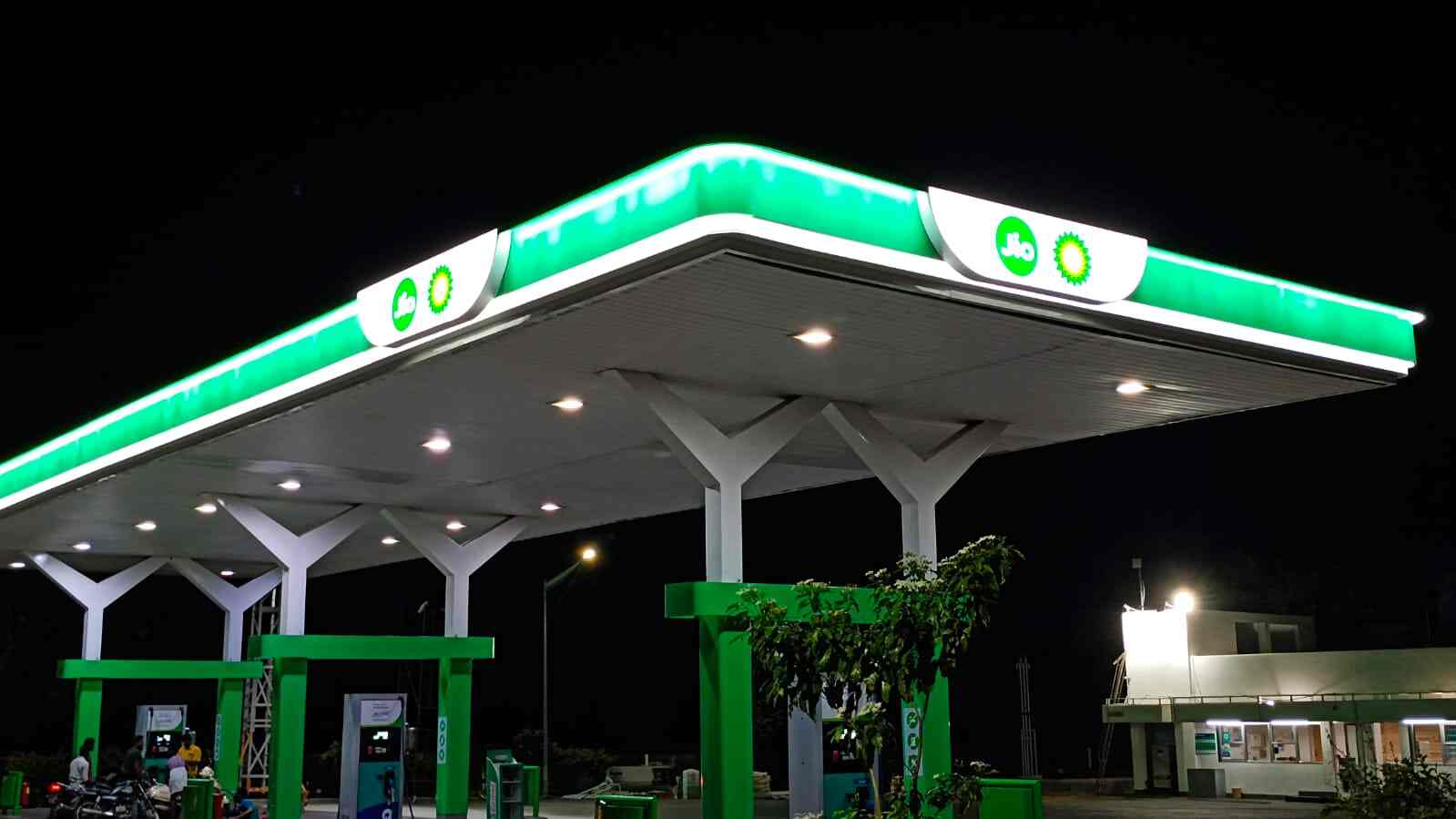PTI – Nayara, the largest private fuel retailer that owns over 7 per cent of India’s 86,855 petrol pumps, started pricing petrol and diesel at market rates sometime in March and RBML’s 1,555 petrol pumps are selling diesel at par from this month.
India’s private fuel retailers Reliance-bp and Russia’s Rosneft-backed Nayara Energy have begun pricing petrol and diesel at market rates for the first time in over a year after a fall in global oil prices cut losses, sources said.
Reliance BP Mobility Ltd (RBML), a joint venture between Reliance Industries Limited and UK’s bp, Nayara Energy and Shell sold petrol and diesel at huge losses as they tried to match the below-cost frozen rates of dominant public sector retailers. The losses were despite pricing fuel at slightly higher rates than state-owned Indian Oil Corporation (IOC), Bharat Petroleum Corporation Ltd (BPCL) and Hindustan Petroleum Corporation Ltd (BPCL).
But a fall in international oil prices over the last six weeks has helped bring the PSU pump-matching retail rates at par with cost, three sources with direct knowledge of the matter said.
Nayara, the largest private fuel retailer that owns over 7 per cent of India’s 86,855 petrol pumps, started pricing petrol and diesel at market rates sometime in March and RBML’s 1,555 petrol pumps are selling diesel at par from this month.
With oil prices dropping to USD 78 per barrel this week from being high, RBML is offering Re 1 per litre discount over PSU rates, at select petrol pumps, they said, adding the joint venture however continues to price petrol at rates higher than PSU competition.
While the softening international oil prices had rekindled hopes for a revision in retail prices by PSU, an oil ministry official stated that a cut in rates is now likely immediately as IOC, BPCL and HPCL are yet to fully recoup the losses they incurred on selling petrol and diesel at rates below cost last year.
The three public sector retailers have broken even on petrol but there are some losses on diesel, the official said.
Sources said diesel at all Jio-bp outlets is now at par with PSU competition or at market price.
However, Jio-bp – the brand under which RBML retails fuel — isn’t selling regular diesel but high performance diesel designed for Indian vehicles and roads to give better fuel economy. The diesel is laced with specially developed additives for Indian roads and driving conditions to produce high performance, they said, adding Jio-bp was selling premium diesel at rates that are equivalent to ordinary diesel at PSU pumps.
State-owned IOC, BPCL and HPCL first froze petrol and diesel rates for 137 days beginning early November 2021 when five states including Uttar Pradesh went to the polls. A second round of hiatus began on April 6, 2022 and is still continuing even after over a year.
Unable to match the below cost rates of PSUs, private retailers scaled down retail operations to cut losses. RBML alone was incurring INR 700 crore loss a month at the peak while Russia’s Rosneft-backed Nayara Energy raised prices of petrol and diesel by up to INR 3 a litre over and above the PSU rates, to cover for some losses.
Sources said private retailers contend that PSU oil marketing companies control over 90 per cent of the market and are the price-setters, leaving no room for them in fixation of the retail selling price of petrol and diesel.
PSUs have not increased fuel prices in line with escalating international crude prices eventually leading to huge under-recoveries (losses) for all fuel retailers since February 2022.
Under-recoveries or difference between cost and retail price was INR 13.08 per litre for petrol and INR 24.09 per litre for diesel at one point of time.
Private retailers time and again highlighted the losses they incurred on fuel sales but the oil ministry dismissed them, saying Reliance exported diesel to Europe and other countries at highly lucrative prices but was rationing supplies at its petrol pumps.
An industry official however said the inference ministry is drawing is incorrect.
Reliance owns and operates two refineries, including one only meant for exports, at Jamnagar in Gujarat. BP has no equity shareholding in them.
RBML is an equal joint venture of Reliance Industries and BP with separate legal identity and separate financial books. RBML buys fuel at market price from Reliance as well as other oil companies to supply to its 1,555 petrol pumps.
“It is like saying that windfall profits that oil producer ONGC is making on spurt in oil and gas prices should be used to help its subsidiary HPCL sell petrol and diesel at highly subsidised rates,” he said.
Nayara Energy owns 6,386 petrol pumps in the country.
IOC, BPCL and HPCL own 78,501 out of 86,855 petrol pumps in the country.
Industry sources said the market practices of PSU OMCs are contrary to the objective of promoting healthy competition and creating the right climate for investments in the fuel retailing sector when petrol pricing was deregulated in 2010 and diesel in 2014.
Seven new private retailers have taken marketing authorisation for fuel retailing after a relaxed fuel retailing policy was announced in 2019.









